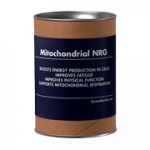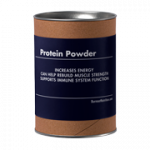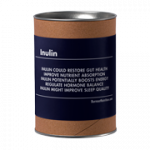Chronic Fatigue Syndrome (CFS) and Myalgic Encephalomyelitis (ME) patients often have an imbalance in their essential fatty acid (EFA) levels, particularly lower omega-3s. This deficiency is linked to immune issues, inflammation, and oxidative stress associated with CFS/ME. Maintaining proper EFA levels through dietary sources like fatty fish, nuts, seeds, and supplements may help:
- Reduce Inflammation: Omega-3s EPA and DHA have anti-inflammatory effects.
- Boost Energy Levels: EFAs help cells produce energy, combating fatigue.
- Improve Cognitive Function: DHA supports brain health, memory, and focus.
- Promote Better Sleep: DHA enhances sleep quality and duration.
- Provide Muscle Relief: EPA reduces inflammation and muscle pain.
To achieve a healthy omega-3 to omega-6 ratio of 1:1 to 4:1, increase omega-3 foods and limit processed foods high in omega-6s. Supplement options like fish oil or krill oil provide concentrated EPA and DHA.
| Supplement | Pros | Cons |
|---|---|---|
| Fish Oil | High EPA/DHA, well-absorbed | Potential fishy aftertaste, may interact with medications |
| Krill Oil | High EPA/DHA, contains antioxidants | More expensive than fish oil |
| Flaxseed Oil | Rich in ALA omega-3s, plant-based | Limited conversion of ALA to EPA/DHA |
| Evening Primrose Oil | High in GLA omega-6 | Limited evidence for CFS/ME benefits |
Consult your healthcare provider to determine appropriate dosages, timing, and monitor for potential side effects or interactions with existing conditions or medications.
Related video from YouTube
Checking for EFA Deficiency
Signs of Deficiency
People with Chronic Fatigue Syndrome/Myalgic Encephalomyelitis (CFS/ME) may experience these signs of an essential fatty acid (EFA) deficiency:
- Dry, rough, or scaly skin
- Dull, brittle hair and nails
- Excessive thirst and frequent urination
- Fatigue and low energy levels
- Brain fog or memory problems
These signs can overlap with CFS/ME symptoms, making it hard to identify an EFA deficiency. But addressing any deficiencies may help relieve some issues.
Testing Options
While no standard test diagnoses an omega-3 deficiency, healthcare providers can assess EFA levels through:
| Test | Purpose |
|---|---|
| Blood Lipid Profile | Measures fatty acid levels, including omega-3s, in blood plasma or red blood cells. |
| Omega-3 Index Test | Evaluates EPA and DHA (key omega-3s) in red blood cell membranes. |
Your provider may recommend one or both tests if you suspect a deficiency.
Understanding Results
When interpreting test results, consider these guidelines:
| Test | Optimal Range | Potential Deficiency |
|---|---|---|
| Omega-3 Index | ≥ 8% | < 4% |
| Omega-3 Blood Level | ≥ 5% of total fatty acids | < 4% of total fatty acids |
If your results fall below the optimal range or indicate a potential deficiency, your provider may recommend dietary changes or supplements to improve your EFA levels.
Maintaining a balance between omega-3 and omega-6 fatty acids is crucial, as excess omega-6 can contribute to inflammation, often a concern for those with CFS/ME.
Food Sources of Omega Fatty Acids
Omega-3 Sources
Omega-3 fatty acids come mainly from fatty fish, nuts, seeds, and certain oils. Here are some top sources:
- Fatty Fish: Salmon, mackerel, sardines, anchovies, and herring are rich in EPA and DHA omega-3s.
- Walnuts: An ounce provides 2.7 grams of ALA, a plant-based omega-3.
- Flaxseeds: Ground flaxseeds pack 6.5 grams of ALA per ounce.
- Chia Seeds: These tiny seeds contain 5 grams of ALA per ounce.
- Canola Oil: Canola oil has a small amount of ALA, making it a better choice than other vegetable oils.
Aim for two servings of fatty fish per week and add walnuts, flaxseeds, and chia seeds to meals and snacks to boost your omega-3 intake.
Omega-6 Sources
While omega-6 fatty acids are essential, most people consume too many from processed foods and vegetable oils. Common sources include:
- Vegetable Oils: Soybean, sunflower, and corn oils are high in omega-6s.
- Nuts and Seeds: Walnuts, pine nuts, sunflower seeds, and pumpkin seeds contain omega-6s.
- Poultry and Eggs: Chicken, turkey, and egg yolks provide omega-6s.
To balance your intake, limit processed foods and choose healthier cooking oils like olive or avocado oil.
Balancing Omega-3 and Omega-6
Maintaining a healthy ratio of omega-3 to omega-6 fatty acids is crucial for reducing inflammation and supporting overall health. Experts recommend a ratio between 1:1 and 4:1 (omega-6 to omega-3), but the typical Western diet is closer to 15:1 or higher.
| Ratio | Description |
|---|---|
| 1:1 to 4:1 | Recommended ratio of omega-6 to omega-3 |
| 15:1 or higher | Typical Western diet ratio |
To achieve a better balance:
- Increase omega-3-rich foods like fatty fish, walnuts, flaxseeds, and chia seeds.
- Reduce processed foods and omega-6-heavy oils.
- Incorporate more plant-based sources of both types of essential fatty acids.
EFA Supplements
When to Consider Supplements
Getting omega fatty acids from foods is ideal, but supplements may be needed if you:
- Struggle to eat enough fatty fish, nuts, seeds, or oils with omega-3s
- Follow a restrictive diet limiting omega-3 food sources
- Have absorption issues or conditions that impair nutrient uptake
- Need higher doses of omega-3s to manage inflammation
Supplement Options
| Supplement | Pros | Cons |
|---|---|---|
| Fish Oil | High in EPA and DHA omega-3s Well-absorbed Supports heart, brain, and joint health |
Potential fishy aftertaste or burps Some products may contain contaminants May interact with blood thinners |
| Krill Oil | High in EPA and DHA Contains antioxidants like astaxanthin Better absorbed than fish oil |
More expensive than fish oil Limited research on long-term safety |
| Flaxseed Oil | Rich in ALA omega-3s Plant-based, suitable for vegans Inexpensive |
Body has limited ability to convert ALA to EPA and DHA Short shelf life, can go rancid quickly |
| Evening Primrose Oil | High in GLA omega-6 May help with PMS and skin conditions |
Limited evidence for CFS/ME benefits Can cause headaches or nausea in some people |
Recommended Supplements
For CFS/ME patients, high-quality fish oil or krill oil supplements are often recommended for their concentrated EPA and DHA content. Look for reputable brands that third-party test for purity and potency, such as:
Speak with your healthcare provider to determine the appropriate dosage and formulation for your needs.
sbb-itb-cf04d29
Dosage and Timing
Determining Dosage
The right dosage of omega-3 supplements for CFS/ME depends on:
- Current omega-3 levels (from bloodwork)
- Symptom severity and deficiency level
- Age, weight, and overall health
- Dietary omega-3 intake from foods
Many experts suggest CFS/ME patients take 1-4 grams of EPA and DHA (the active omega-3s in fish oil) daily. However, dosages may need adjusting based on individual needs and response.
For confirmed omega-3 deficiency or severe symptoms, higher doses of 3-4 grams per day may be advised initially to correct the imbalance. Lower doses of 1-2 grams daily may work for maintenance once levels are optimized.
When to Take Supplements
There’s no definitive best time, but some tips can help:
- Take supplements with meals containing healthy fats to aid absorption.
- Split the daily dosage and take twice a day with breakfast and dinner.
- Avoid large doses on an empty stomach, as this may cause discomfort.
- Be consistent and take supplements around the same times each day.
It may take several weeks or months of consistent use to experience the full effects on CFS/ME symptoms.
Improving Absorption
To enhance absorption and bioavailability:
- Take supplements with a meal containing healthy fats like avocado, nuts, olive oil, etc.
- Consider taking them with fat-soluble vitamins (A, D, E, K) to aid absorption.
- Choose high-quality supplements using concentrated triglyceride forms of omega-3s for better absorption than ethyl esters.
- Avoid taking supplements with caffeine or very hot foods/beverages, as this may impair absorption.
- Stay hydrated, as water aids in the absorption and transportation of fatty acids.
Consult your healthcare provider for personalized guidance on optimizing dosage and absorption based on your specific needs and health status.
Potential Benefits
Boosting Energy
Omega-3 fatty acids like EPA and DHA help cells produce energy. By taking EFA supplements, CFS/ME patients may feel less fatigued. These fatty acids also reduce inflammation, a key factor in CFS/ME exhaustion.
Reducing Inflammation
Chronic inflammation worsens CFS/ME symptoms like fatigue, pain, and brain fog. Omega-3s EPA and DHA have anti-inflammatory effects. EFA supplements may ease inflammation, improving overall well-being for CFS/ME patients.
They can also reduce muscle and joint pain, common issues for those with CFS/ME. Less inflammation in these areas means better mobility and less symptom flare-ups from physical activity.
Cognitive Improvements
Many with CFS/ME struggle with brain fog and poor concentration. DHA, an omega-3, supports brain health and cognitive function. Optimizing EFA levels through supplements may enhance memory, focus, and mental performance.
The anti-inflammatory effects of EFAs also protect the brain from inflammation-related damage, potentially alleviating cognitive impairment in CFS/ME.
Better Sleep
Sleep disturbances are frequent for CFS/ME patients. DHA promotes better sleep quality and duration. By supporting sleep-regulating hormones and reducing inflammation, EFA supplements may help those with CFS/ME get more restful, restorative sleep.
Improved sleep can reduce fatigue, sharpen cognition, and make it easier to manage CFS/ME symptoms overall.
Muscle Relief
Muscle pain and weakness often trouble CFS/ME patients, especially after activity. EPA, an omega-3, has anti-inflammatory and pain-relieving effects that may ease muscle discomfort.
By reducing muscle inflammation and aiding recovery, EFA supplements could allow more comfortable physical activity for those with CFS/ME, potentially boosting fitness and quality of life.
| Benefit | How EFAs Help |
|---|---|
| Energy Boost | Optimize mitochondrial function and energy production |
| Reduced Inflammation | Anti-inflammatory effects of omega-3s like EPA and DHA |
| Cognitive Improvements | DHA supports brain health, memory, and focus |
| Better Sleep | DHA promotes sleep quality and duration |
| Muscle Relief | EPA reduces inflammation and muscle pain |
Precautions and Side Effects
Common Side Effects
While generally safe, some people may experience mild side effects when taking omega-3 supplements:
- Fishy taste or bad breath
- Digestive issues like nausea, bloating, burping, or loose stools
- Mild stomach discomfort
These effects are more likely with higher doses. Using high-quality supplements and starting with lower doses can help minimize these issues.
Potential Interactions
Omega-3 supplements may interact with certain medications or supplements. Consult your healthcare provider if you are taking:
| Medication/Supplement | Potential Interaction |
|---|---|
| Blood thinners or anticoagulants | Increased bleeding risk |
| Blood pressure medications | May affect blood pressure |
| Anti-inflammatory drugs like ibuprofen | May increase bleeding risk |
| Supplements like ginkgo biloba or vitamin E | May increase bleeding risk |
Omega-3s may also affect immune function, so caution is advised for those with weakened immune systems or prone to infections.
Consulting Professionals
Before starting any new supplement, consult your healthcare provider, especially if you have pre-existing conditions or take medications. They can:
- Determine the appropriate dosage
- Monitor for potential interactions or side effects
- Ensure omega-3 supplementation is safe for your individual needs
For those with CFS/ME, work closely with a healthcare professional familiar with the condition. They can guide you on incorporating omega-3 supplements into your overall treatment plan.
Summary
Key Points
-
Omega-3 fatty acids like EPA and DHA may help manage symptoms of Chronic Fatigue Syndrome (CFS) and Myalgic Encephalomyelitis (ME):
- Reduce inflammation
- Boost energy levels
- Improve cognitive function
- Promote better sleep quality
- Provide muscle pain relief
-
Maintaining a healthy balance between omega-3 and omega-6 fatty acids is crucial, as too many omega-6s can increase inflammation.
Consult Your Doctor
Before taking omega-3 supplements:
- Speak with your healthcare provider, especially if you have existing conditions or take medications.
- They can evaluate your needs, recommend dosages, and monitor for potential side effects or interactions.
- They’ll guide you on incorporating supplements into your overall CFS/ME treatment plan.
Comprehensive Approach
While omega-3s may help, managing CFS/ME symptoms requires a well-rounded approach:
- Increase omega-3-rich foods in your diet
- Practice stress management techniques
- Engage in gentle exercise as tolerated (under medical supervision)
- Consider complementary therapies like cognitive behavioral therapy
Addressing various aspects of the condition can improve overall well-being and quality of life.
| Potential Benefits | How Omega-3s May Help |
|---|---|
| Reduced Inflammation | Anti-inflammatory effects of EPA and DHA |
| Increased Energy | Optimize energy production in cells |
| Cognitive Improvements | DHA supports brain health, memory, and focus |
| Better Sleep | DHA promotes sleep quality and duration |
| Muscle Relief | EPA reduces inflammation and muscle pain |
FAQs
What essential fatty acids help with CFS/ME?
Research by Professor Basant Puri of Imperial College London suggests that high doses of two specific fatty acids may help manage the symptoms of Chronic Fatigue Syndrome (CFS) or Myalgic Encephalomyelitis (ME):
- Eicosapentaenoic acid (EPA): An omega-3 fatty acid found in fish oil.
- Gamma-linolenic acid (GLA): An omega-6 fatty acid found in evening primrose oil.
Supplementing with these fatty acids may help alleviate CFS/ME symptoms by addressing abnormal fatty acid metabolism, which is thought to contribute to the condition.
Does omega-3 help chronic fatigue?
Yes, research indicates that omega-3 fatty acids like EPA and DHA (found in fish oil) may help treat chronic fatigue syndrome.
Omega-3s are known to reduce the production of pro-inflammatory compounds called cytokines, such as interleukin-1 and tumor necrosis factor. These cytokines play a role in regulating the immune system.
By reducing these inflammatory mediators through omega-3 supplementation, it may help manage chronic fatigue symptoms, which are believed to be linked to immune system dysfunction and inflammation.
| Fatty Acid | Source | Potential Benefits for CFS/ME |
|---|---|---|
| EPA (Omega-3) | Fish Oil | May help alleviate symptoms by addressing abnormal fatty acid metabolism. |
| GLA (Omega-6) | Evening Primrose Oil | May help alleviate symptoms by addressing abnormal fatty acid metabolism. |
| DHA (Omega-3) | Fish Oil | May help manage chronic fatigue by reducing inflammation and regulating the immune system. |
Related posts
- 10 Key Nutrients for CFS/ME Management
- Macronutrient Balance for CFS/ME Energy
- Antioxidants for CFS/ME: Benefits, Diet Tips
- Personalized Nutrition for CFS/ME: 10 Steps to Boost Energy






Leave a Reply